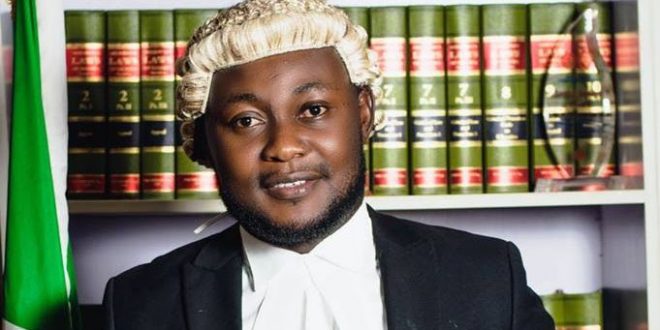The concept of gifts seldom generates disputes especially when a benefactor changes his mind towards the beneficiary and attempts to retrieve a gift already given. Generally, gifts given out cannot be retrieved under the law except if the gifts is conditional or does not meet up with the requisite conditions that satisty an act as a gift.
The Black’s Law Dictionary, Ninth Edition, defines a gift as the voluntary transfer of property or a thing to another without compensation. In simple parlance, a gift is the transfer of something of value to another without necessarily receiving anything in return. The gift giver is called the Donor while the recipient is called the Donee.
A gift is a legally enforceable transfer of interest in a thing provided same is done in accordance with the legal prerequisites which includes:
The donor’s voluntariness,
The intention to donate the gift,
The existence of an identifiable and unencumbered thing or interest which is the gift itself,
The delivery of the gift,
The acceptance of the gift by the donee,
And finally the absence of consideration.
The Supreme Court in Anyaegbunam v. Osaka (2000) 5 NWLR (Pt. 657) defined inter vivos gift as an act whereby something is voluntarily transferred from the true possessor to another person with full intention that the thing shall not return to the donor, and with full intention on the part of the receiver to retain the thing entirely as his own without restoring it to the giver.
It should be noted that the general principle of contract law relating to capacity also apply in gifts in determining the competence of the donor vis a vis the nature and circumstance of the gift. People of unsound mind, minor, may not be competent to donate a gift.
Gifts may be categorized differently based on nature, circumstance and purpose or intent.
A gift may be gift inter vivos, gift causa mortis or testamentary gift. Gift inter vivos refers to gift between two living persons while gift causa mortis is a gift in contemplation of death. An inter vivos gift takes effect while the donor is living as contrasted with a testamentary gift which is to take effect on the death of the donor (testator); and once it is made, the subject of the gift ceases to belong to the donor. A gift inter vivos must possess three elements: the present donative intent of the donor (that he intends to make the gift ‘now’ and not a promise in the future.
Therefore, a promise to give someone your car by the end of the month is not a gift, but a promise even though enforceable, only becomes a gift upon the delivery and acceptance by the donee. Once the gift is in the possession and control of the donee, it is a complete gift. On the other hand, a gift causa mortis must possess the elements aforementioned, plus the donor’s anticipation of death. The donor in this scenario might be sick, injured, or believes that s/he’s approaching death. In the event that the donor does not die, the gift is automatically revoked; and if such donor intends for the gift to still pass to such donee, s/he has to re-gift it or include it in a will as a testamentary gift.
With regards to the nature of gifts, a gift may be real or manual. Real gifts refer to gifts of immovable property such as land and houses or anything affixed on the land. Manual gifts are gifts of personal, tangible, movable property, otherwise called chattels or chose transitory. A gift may also be a chose in action, which refers to transferrable interests in property which can only be enforced by taking action, not by physical possession; such as shares. Manual gifts require no formality to be enforced as far as there is donative intent, delivery and acceptance by the donee; however, real gifts need to be reduced into writing to be validly transferred. Section 4 of the Statute of Frauds Act prescribes all transactions, transfers pertaining to land, including gifting, to be executed in writing, describing the property and signed by the donor. The purpose of this formalism is to promote the common good by protecting social interest in the security of transactions and of acquisitions against fraud and deception. Although Customary Law requires no writing for the transfer of land by way of gift, in lieu of writing however, there must be actual handing over of the land to the donee in the presence of witnesses and the acceptance by him of the gift. See the case of Madam Alice Orido v. Theophilus Akinlolu (2012) LCN/5271 (CA).
As free as gifts are said to be, a gift may either be conditional or unconditional. Generally, it is trite in law that a donor of absolute gift cannot revoke the gift after it has been accepted by the donee. However, where a donor can show that the gift was subject to a condition which has been broken, such a completed gift can be revoked. See the case of Ekpa v. Utong (1991) 6 NWLR (pt.197) 258 at 284. A conditional gift becomes irrevocable only upon fulfilment of the condition upon which it was given. For instance, a gift of land to a religious leader for the purpose of building a place of worship in ‘your’ village can be revoked where such religious leader builds a family house instead. In Odede & Anor v. Jonah & Anoh (2019) LPELR-49040 (CA), the Court rejected the Appellant’s argument of an outright gift when a family land was given to the appellant’s family to build a church pending when the land would be partitioned. The Appellant was supposed to build temporary structures but he started changing the walls and was stopped by the Respondents. The Court held that if it was an outright gift he wouldn’t be stopped by anyone, much less the people who gifted him; that what the Appellant called an outright gift is in fact nothing more than a conditional license to occupy the land with the understanding that structures built should be temporary.
A gift under a promise of marriage, whether real or manual can be revoked where the donee refuses to marry the donor; that is to say where a contract to marry exists between the donor and donee, a claim for revocation of gifts given under that promise or contract to marry can be entertained under general law.
However, such contract must be with respect to statutory marriage under the Marriage Act, not customary law marriage; and such contract to marry will only be valid between persons of single status. It is therefore necessary for a donor of such gift to protect the transaction by expressing the conditions of the gift, in writing or advisably in the presence of witnesses. The idea of a prenuptial agreement is usually faulted as being morally incompatible, yet the law is not sentimental or moral; if prospective spouses fail to protect their interests, they should not expect remedy under law. Postnuptial agreements are also encouraged to cover instances where spouses divorce or a spouse dies intestate or leaves behind property which would otherwise be counted as residuary gifts.
Gifts given or favours and services rendered in expressed anticipation of something in return can be withdrawn, or recovered. Where a gift cannot be recovered, the donor can sue for damages in lieu. Where a person makes a donation inter vivos or testamentary to a non-profit organization or a religious organization for purposes of advancement beneficial to the community, such gift is regarded as charitable or pious and cannot be revoked except clear conditions are found to be broken, or under legally recognized grounds; so it behoves on the donor to express intent in writing to be accepted by the donee. Furthermore, a gift can be revoked where the donor can establish fraud, mistake, misrepresentation or perhaps failure of the object of the gift. See the case of Imah & Anor v. Chief A Okogbe & ors (1993) 12 SCNJ 57; (1993) 9 NWLR (Pt. 316) 159.
It goes without saying that a recipient needs to clarify whether the item or property given is really a gift, and a donor should clearly express the purpose or condition of a gift, if any. People who are always in place to receive gifts or enjoy free services should learn to inquire into the purpose, conditionality and masked consideration or reciprocal obligations behind such gifts, to avoid matters that may arise in future.
Pelumi Olajengbesi Esq. is a Legal Practitioner and the Managing Partner at Law Corridor, Abuja.
 Hottestgistnaija.com
Hottestgistnaija.com





